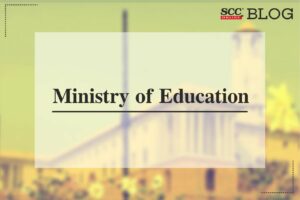Government approved a new scheme “New India Literacy Programme (नव भारत साक्षरता कार्यक्रम) for the period FYs 2022-2027 to cover all the aspects of Adult Education to align with National Education Policy 2020 and Budget Announcements 2021-22. The National Education Policy 2020 has recommendations for Adult Education and Lifelong Learning.
The Union Budget 2021-22, announcement had been made to enable increased access of resources, online modules covering the entire gamut of adult education will be introduced.
The objectives of the scheme is to impart not only foundational literacy and numeracy but also to cover other components which are necessary for a citizen of 21st century such as critical life skills (including financial literacy, digital literacy, commercial skills, health care and awareness, child care and education, and family welfare); vocational skills development (with a view towards obtaining local employment); basic education (including preparatory, middle, and secondary stage equivalency); and continuing education (including engaging holistic adult education courses in arts, sciences, technology, culture, sports, and recreation, as well as other topics of interest or use to local learners, such as more advanced material on critical life skills).
The scheme will be implemented through volunteerism through online mode. The training, orientation, workshops of volunteers, may be organized through face-to-face mode. All material and resources shall be provided digitally for easy access to registered volunteers through easily accessible digital modes, viz, TV, radio, cell phone-based free/open-source Apps/portals, etc.
Salient Features of the scheme
- School will be Unit for implementation of the scheme.
- Schools to be used for conducting survey of beneficiaries and Voluntary Teachers (VTs).
- Different strategies are to be adopted for different age cohorts. Flexibility for States/UTs will be provided to undertake innovative activities.
- Foundational Literacy and Numeracy will be imparted through Critical Life Skills to all non-literates in the age group of 15 years and above.
- Use of Technologies to impart Adult Education for wider coverage of the scheme.
- Performance Grading Index (PGI) for State/UT and district level will show the performance of States and UTs to implement the scheme and achievements on yearly basis by weighing both the physical and financial progress through UDISE portal.
- CSR/Philanthropic Support may be received by hosting ICT support, providing volunteer support, opening facilitation centres for learners and for providing IT access to economically weak learners in the form of cell phones, etc
- Priority and Saturation in Literacy- The age cohort of 15-35 will be saturated first followed by ages 35 and above. Priority will be given in terms of categories to the Girls and women, SC/ST/OBC/Minorities, Persons with Special Needs (Divyangjans), Marginalized/ Nomadic/ construction workers/ laborers/etc. who can substantially and immediately benefit from adult education. In terms of location/area, the focus shall be on all aspirational districts of NITI Aayog, districts with literacy rates less than the National/State average, districts with female literacy rates less than 60% as per the 2011 Census, Districts/ Blocks with large SC/ST/ Minority population, Educationally Backward Blocks, Left Wing Extremism Affected districts.
- Convergence with Ministries and Departments for effective implementation of NILP: MeitY: Digital Literacy, DFS/MoF: Financial Literacy, MoSDE: Skilling, DoJ/MoLJ: Legal Literacy, MoD: Involvement of NCC Volunteer and Ex- Servicemen, MoYAS: Involvement of NYKS, NSS, MoRD: NRLM and DDU-GKY, MoC: Involvement of Cooperative Societies, MoHFW: Health and Hygiene Literacy, NDMA/MHA: Disaster Management, MoMA: for implementing among Minorities, DoHE: Continuing Edn, Min of Culture: Libraries, Cultural Literacy, MoPR: For Panchayat support, Rural Libraries, MWCD: Involvement of Anganwadi Workers, and MoTA: Implementing in Tribal areas etc.

